When it comes to facing a substance use disorder, an individual can experience incredible obstacles.
In order to make the road to recovery as easy, safe and comfortable as possible, research is continually investing in future studies and developing new technologies that can support those fighting substance abuse.
One key area of technological advancement that has improved the recovery experience is virtual reality.
The ability to become immersed in another world has facilitated leaps in leisure and video entertainment, but it has also provided the perfect, ultra-safe environment for patients with alcohol dependence or drug addiction to fight their triggers and resist cravings.
Get the help you need to overcome addiciton by giving our team a call on 0800 140 4690
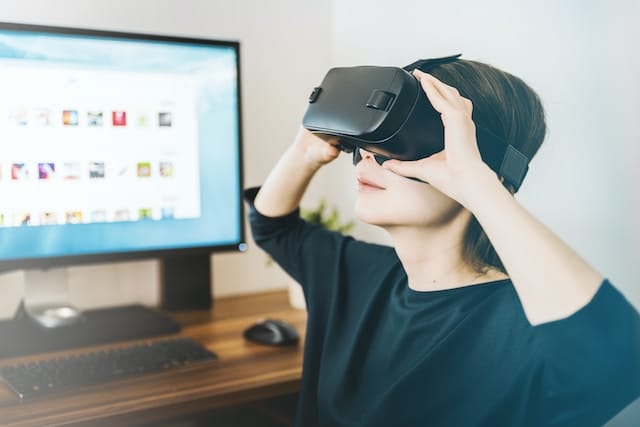
Putting on a headset and entering a virtual world may not immediately seem like a useful thing for drug or alcohol addiction sufferers to do, but the beauty of VR is that this exact technology grants the safest way to encounter, engage with, and combat addiction triggers.
Using virtual reality therapy, an individual can be transported to a bar, club, party, or other scenario in which they may be faced with triggers that incite addictive behaviours.
Peer pressure, social anxiety, mental health disorders – such pressures can be prompted by VR.
The magic to this method is that individuals can become immersed in these scenarios without putting themselves in danger.
They can believe temporarily that they are in a tough situation, but in reality, they are under the safe supervision of medical staff and therapists.
VR grants the opportunity to role-play, face triggers, practice rejecting them and behaving in alternative, healthier ways.
Individuals can get used to deploying the coping mechanisms they’ve learned in rehab, and if they fail, they can try again without any consequences.
By exposing themselves more and more to tempting situations, individuals are able to build confidence in their ability to handle themselves and deploy the techniques they’ve learned. This confidence eventually proves vital in real-life situations, improving relapse prevention.
To learn more about how virtual reality can play an effective role at drug and alcohol rehab, call us today on 0800 140 4690
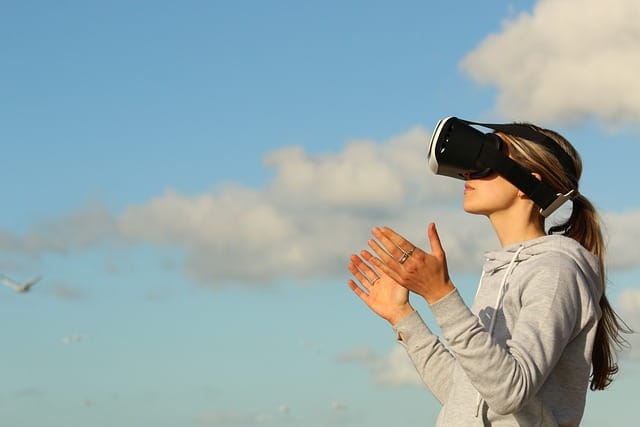
The idea of using virtual reality is appealing, but what tangible benefits does it have?
At what stages can it be used during rehab, and what benefits will individuals see compared with those who don’t use virtual reality during alcohol and drug addiction treatments?
The reality is that those recovering from a drug or alcohol use disorder can find virtual reality helpful at several key stages of treatment.
When an individual enters rehab, they will undergo detox to wean their body from its physical dependency on a substance.
This treatment is necessary but intensely stressful, with physical and mental endurance being tested throughout the process.
Virtual reality can help during this treatment by calming or soothing an individual during the trialling process of withdrawal.
Immersed in another reality that takes away the stressful reality around them, individuals can feel more relaxed, improving their tolerance for stress.
Those without VR during rehab can find themselves panicking when detox begins to get tough. The clinical, neutral environment of rehab and the detachment from family and home life can compound to heighten stress, but VR can take away this anxiety to an extent.
Once detox has finished, it’s normal for an individual to face cravings that compel them to resume their substance use.
Combatting these cravings poses possibly the largest challenge of recovery, with sights, smells, and situations all combining to encourage relapse.
For those who don’t have access to VR, cravings are fought via discussion and imagination.
It would be unsafe to subject an individual to real-life triggers, and so treatment must work with picturing stressful scenarios and imaginatively practicing to resist their influence.
If VR is available, the technology can be used to place individuals into these situations, recreating the stimuli in real-time without posing any risk to their well-being, and have them engage with and practice resisting cue-elicited cravings.
Cue exposure therapy can be hugely impactful for individuals who have struggled with cognitive distortions that have prevented them from noticing the cause of their addictive behaviours. Analysis of cues via VR can knock down this wall and offer new insights.
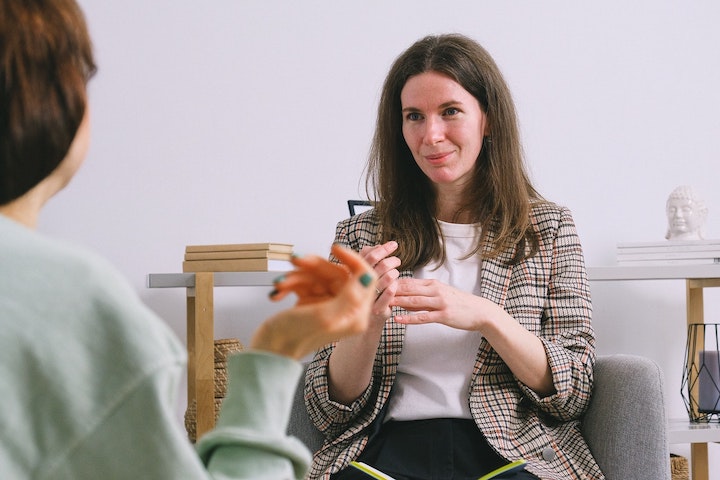
Getting to the root of a substance use disorder requires individuals to engage with addiction therapy.
Therapy in alcohol or drug rehab looks into why an individual behaves the way they do, but it can often be difficult to identify such triggers, especially since an individual will likely not be aware of them.
Lengthy discussions with an addiction therapist are the usual route by which these triggers can be identified, but VR can hasten the process by subjecting patients with alcohol dependence or drug addiction to different scenarios and seeing how they react.
Without posing a threat to well-being or sobriety, this technology can help therapists narrow down potential triggers and provide tailored support in resisting relapse after treatment ends.
It’s no secret that addiction rehab is challenging.
Drug or alcohol-dependent patients face moments of physical and mental fatigue, and that’s a big reason why rehab facilities try their best to promote relaxation, rest, and recovery for those working through treatment.
VR can be really helpful here. By taking individuals away to somewhere pleasant – with wonderful views, calming sounds, and no distractions – the technology can put individuals in a stable mindset, from which they can commit themselves to making the most of treatment.
Experience all the benefits of VR for addiction treatment at a first-rate drug and alcohol rehab by talking to us on 0800 140 4690
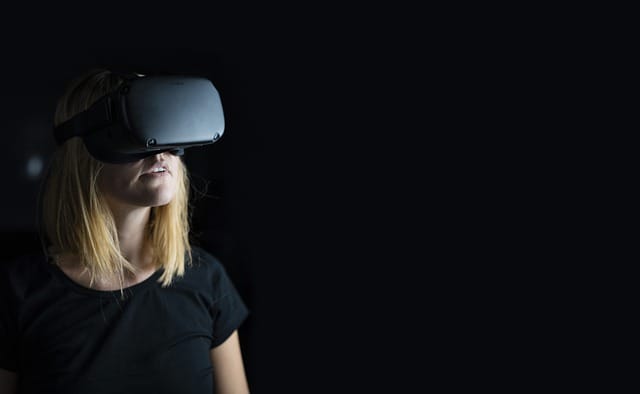
It can be difficult to imagine the usefulness of VR in addiction recovery with ideas alone, so let’s take a look at an example and assess how VR can be used to support an individual combatting a behavioural addiction disorder.
Treatment of gambling disorder in rehab can be supported via VR with the generation of virtual environments, which may be potentially triggering for the individual involved.
A casino, perhaps, can be produced as a virtual reality environment, and the individual who has been a pathological gambler prior to treatment can be immersed in the setting and scenario in order to test out their coping mechanisms.
The individual is likely to struggle at first – perhaps having a stressful physiological response to the rendered scenario – but the benefit of VR is that they are in no way endangered by the experience; they can simply remove the headset and come back to reality.
With frequent exposure, the individual can become used to the casino setting and build the confidence to say no to those individuals or stimuli that are pressuring them to resume gambling.
In addition to this primary benefit, the use of VR in helping this individual combat their gambling addiction disorder also provides complimentary benefits that optimise and boost recovery.
These additional benefits might include heightened control and customisation of trigger exposure, improved trust in the recovery treatment process, and the capacity to replicate very specific or unusual triggers to enhance the personalisation of treatment.
Whereas individuals may find it difficult to imagine triggers or induce themselves into a stressful situation, research has shown [1] that VR is effective in replicating and producing triggering situations, a benefit that ensures its usefulness within treatment.
To learn more about how VR can help you beat addiction at a drug and alcohol rehab, call us on 0800 140 4690
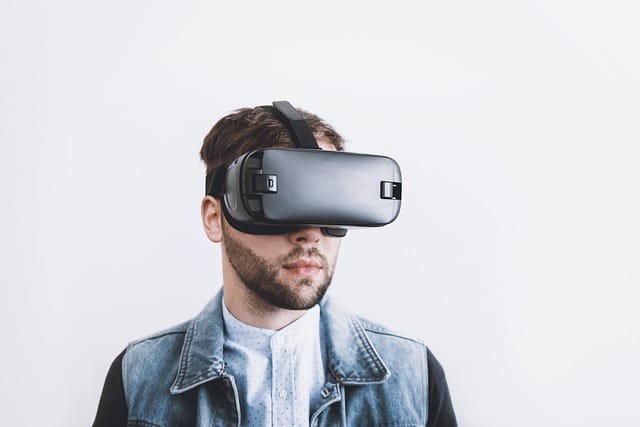
Virtual reality therapy can be used in other ways besides those listed above.
Treating a substance use disorder is a holistic experience, and individuals can benefit from supportive treatments that target different aspects of life and recovery.
Some of these more general uses of VR [2] within addition rehab include:
It’s well known that family involvement can play a beneficial role in the success of addiction rehab, [3] and VR offers a really good way for relatives to become part of the recovery process.
By immersing parents, partners and siblings into simulations, VR can help them understand what addiction disorders feel like to a loved one.
Stress, anxiety, and panic can be communicated in a way that articulates the pressures of substance use disorders.
In experiencing this, family members can find it easier to understand, sympathise with, and support their loved ones.
In the same way that VR can support individuals in practising their coping mechanisms, VR can also be used to help family members practice supporting their loved ones when relapse threatens.
One of the emphatic ways VR can change an individual’s perspective is by presenting them with an avatar of themselves.
In a simulation, individuals can observe and even interact with themselves, and this can provide a range of benefits.
Not only can witnessing their behaviour patterns from the third person help them recognise the dangers of their behaviours and how easily they are repeated, but it can also provide fresh motivation to change the way others see them.
VR can also help those who struggle with other mental health disorders as well as their addictive disorder recognise the interactions between the two in real time and generate relevant coping strategies.
Combatting a substance use disorder is the primary objective of rehab, but treatment also looks to prepare individuals for returning to everyday life.
Recovery isn’t just about reclaiming physical stability, it’s about reclaiming the personality and confidence lost during addiction.
Just as virtual reality environments can be used to replicate stressful situations, they can also help individuals reacquaint themselves with social interactions.
Individuals can practice speaking to strangers, going to the supermarket, or attending work or school.
Over time, confidence can be built again, ensuring that the day-to-day chores of normal life do not become triggers for relapse.
Find your way towards recovery from addiction today at 0800 140 4690